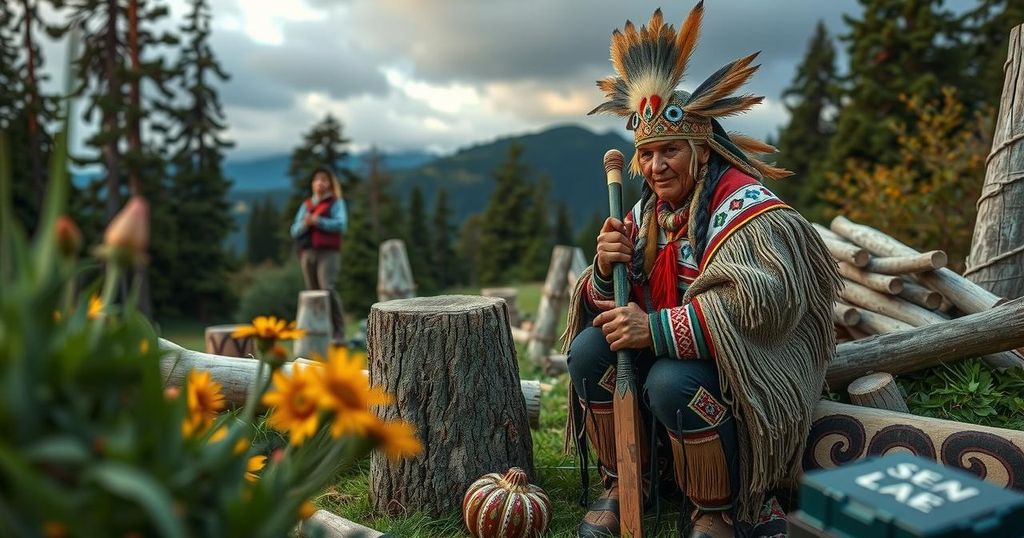Dr. Danielle Touma, a professor at the University of Texas, is assisting the Karuk Tribe in addressing climate challenges such as wildfire risks. Her work integrates scientific modeling with the tribe’s traditional ecological knowledge to develop strategies for managing these risks, exemplifying the importance of collaborative efforts between scientists and Indigenous communities.
In her quest to assist the Karuk Tribe in Northern California, Dr. Danielle Touma, a research professor at the University of Texas, Austin, leverages her background in civil engineering and expertise in earth system sciences to tackle climate challenges. Dr. Touma’s work focuses on understanding extreme climate events, including wildfires and droughts, and she is now applying her knowledge in a practical context to help the Karuk Tribe assess wildfire risks that threaten their cultural practices and livelihoods.
Dr. Touma’s involvement with the Karuk Tribe was initiated during her postdoctoral research at the National Center for Atmospheric Research (NCAR), where she modelled wildfire risk. Upon collaborating with a University of Washington academic connected to the tribe, she was drawn into a project aimed at developing a hydrology model for the tribe’s territory. This engagement solidified her intention to support the tribe in addressing their concerns about increasing wildfire hazards, which have drastically risen in California, particularly over the past two decades.
The Karuk Tribe, like many indigenous peoples across the United States, faces severe repercussions from climate change, including the degradation of traditional food sources and unpredictable weather patterns. Dr. Touma recognizes that tribal communities possess rich, ancestral environmental knowledge that can significantly inform contemporary ecological strategies. Her plan involves creating a climate projection framework that melds traditional ecological knowledge with cutting-edge Earth system model simulations, thereby empowering the Karuk Tribe to forecast potential climate-induced threats accurately.
By fostering a collaborative relationship, Dr. Touma aims to establish a model for scientists working alongside Indigenous populations, emphasizing the necessity of co-created research to effectively combat extreme weather risks. Her partnership with the Karuk Tribe represents a promising avenue for integrating science with traditional wisdom to enhance land management strategies and sustain tribal livelihoods.
Climate change manifests through extreme weather patterns that disproportionately impact indigenous tribes, affecting their food sources and traditional ways of life. Tribes possess extensive ecological wisdom accrued over centuries; however, their methods are challenged by rapid climate change that results in increasing unpredictability of weather. In California, the last two decades have witnessed a significant rise in the frequency and intensity of wildfires, prompting a need for innovative approaches to mitigate these risks.
Dr. Danielle Touma’s initiative to aid the Karuk Tribe exemplifies a progressive step towards blending scientific research with indigenous environmental stewardship. This partnership not only addresses immediate climate challenges, such as wildfire risks, but also seeks to establish a replicable model for collaboration between scientists and Indigenous communities, emphasizing that such co-creative efforts are essential for effective environmental management in the face of climate change.
Original Source: thestoryexchange.org






